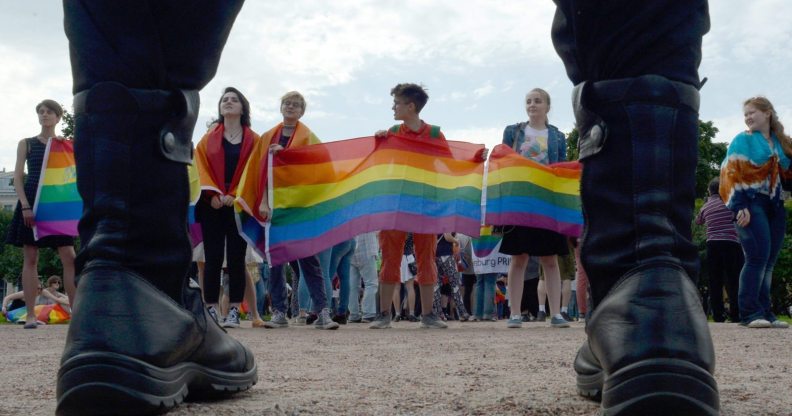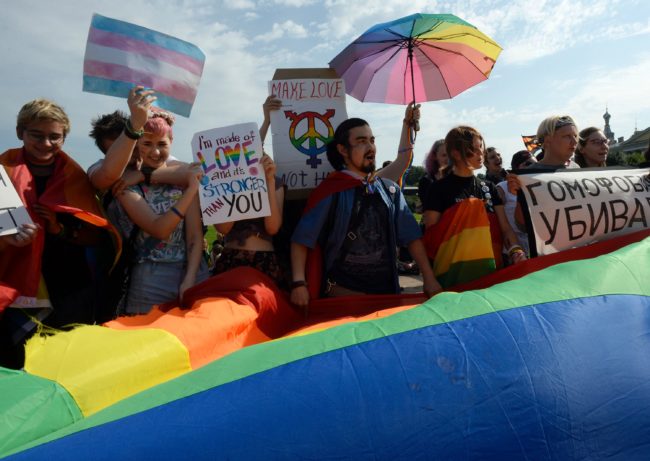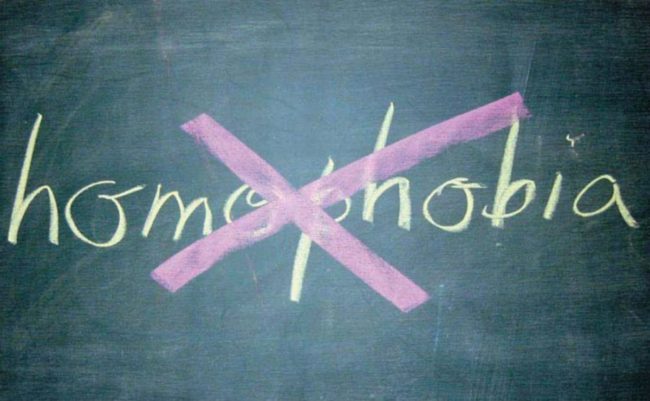LGBTQ+ activists in former Soviet countries facing ‘rise in hostility’

St. Petersburg Pride
Experts have warned that LGBTQ+ activists living in former Soviet republic countries are facing a “rise in hostility” in their fight against discrimination.
A report published by Amnesty International said that discrimination in Armenia, Belarus, Kazakhstan and Kyrgyzstan had rocketed.

(Photo by OLGA MALTSEVA/AFP/Getty Images)
The human rights watchdog stressed that LGBT activists and groups were facing an “increasingly discriminatory environment”.
The report said that the discrimination was being fuelled by Russia’s crusade against “nontraditional sexual relationships”.
Related: Chechnya leader banned from US under fresh sanctions amid anti-gay purge
Denis Krivoshev, the deputy director for Europe and Central Asia at Amnesty International said that the discrimination in the four countries had worsened because of “Russian influence” which calls LGBTQ+ rights “Western Values”.
Krivoshev explained that the idea that LGBTQ+ equality is “a threat to national security” comes from “a climate of ignorance and hate that’s being fostered by national governments and is even infecting the human rights community in the region.”
Related: European leaders called for Turkey to revoke blanket ban on LGBT events
“The idea, promoted by Russia, that LGBTI rights are ‘Western values’ that somehow constitute a threat to national security is entrenching elsewhere,” he added.
Each of the four countries have followed Russia in homophobic legislation in recent years.
Distribution of “propaganda of nontraditional sexual relationships” was outlawed in 2016 by Belarus.
LGBTQ+ groups said the move encouraged discrimination and violence against the community.

Related: HRC condemns Kyrgyzswere for passing draft ‘gay propaganda’ law
It also de-facto outlawed Pride events.
The report explained that there were very few exceptions to Pride marches being permitted and when they had been held they were targetted with violence.
The homophobic groups were then not condemned and police often did little to intervene or investigate hate crimes.
It’s a law that Armenia, Kyrgyzstan and Kazakhstan tried to adopt in 2013 but failed to do so.
However, Armenia and Kyrgyzstan explicitly banned same-sex marriage in their constitution.

